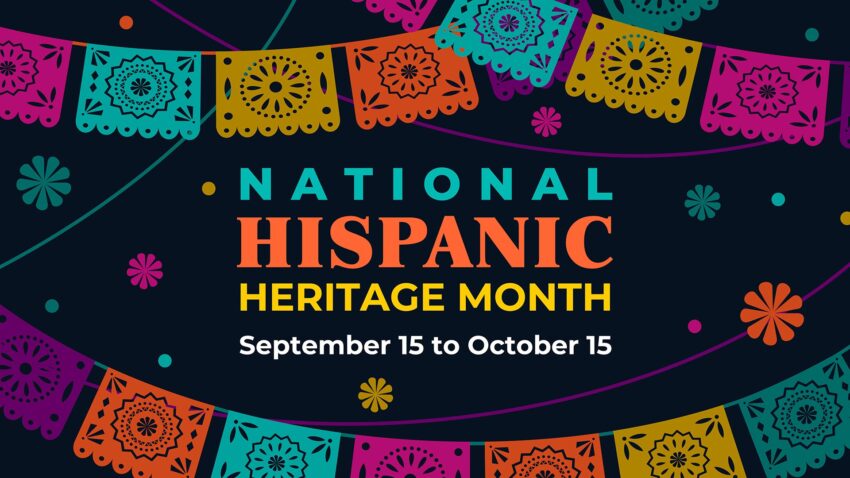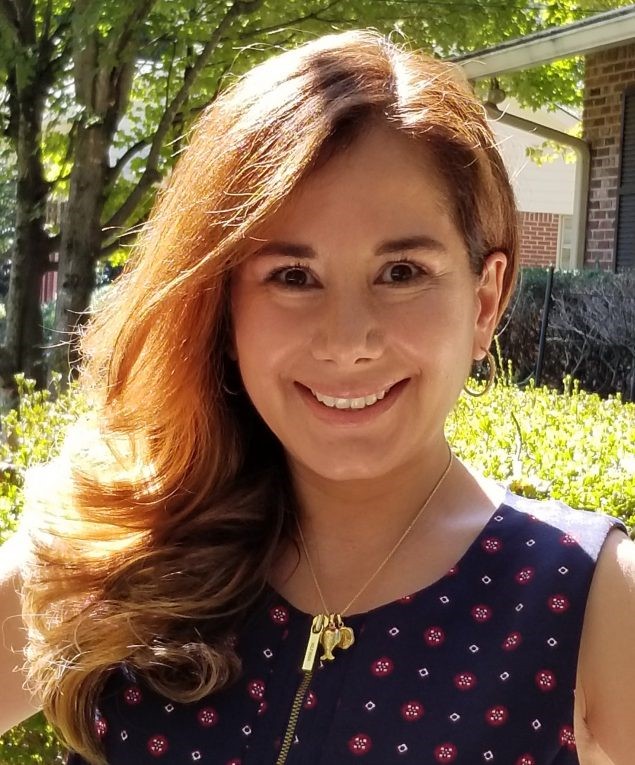
Share On Social!
By Dr. Fátima Coronado
CDC, Salud America! Guest Blogger
Every year, the United States recognizes National Hispanic Heritage Month (NHHM) from September 15 to October 15, to celebrate the histories, cultures, and contributions of generations of Hispanic Americans born in and outside the U.S., who have helped to shape this diverse country.
The theme for this year’s NHHM is Unidos: Inclusivity for a Stronger Nation. In Hispanic culture, unidos (in unity, with inclusivity) is associated with positive outcomes. Being unidos is necessary for getting through tough times, for meeting goals and getting things done together.

NHHM provides an opportunity to acknowledge that while many health indicators have improved for most people in the U.S., significant disparities in health and health care persist particularly in Hispanic communities. The reasons for these disparities range from minority and socioeconomic status, language barriers, inadequate access, uneven health care, and more. Structural racism, stereotypes, biases, and other systemic factors have also contributed to these disparities. For Hispanic communities, these disparities take on many forms, including higher rates of chronic conditions, worse health outcomes, and premature death, all presenting with significant health, social, and economic consequences.
To improve the public’s health and achieve health equity for the Hispanic/Latino population, we can employ strategies that fully engage communities and address structural, social, and economic conditions in a culturally competent manner. Successfully implementing these strategies will also require focus on communicating relevant and practical information that resonates with Hispanic/Latino audiences and subgroups. With roots in dozens of countries and territories across Latin America and the Caribbean, the Hispanic/Latino population in the United States also represents a diversity of beliefs and attitudes toward many topics, including how we maintain our health and when, why, and from whom we access health care.
 Reaching different Hispanic/Latino groups to help decrease health disparities requires more than a one-size-fits-all approach. Understanding and accepting this rich diversity supports effective outreach, with strategies informed by science, and with an understanding of how various Hispanic groups best receive, understand and act to protect their health. This tailored social approach to inclusion may help Hispanic and other minority populations to have the opportunity to lead longer, healthier lives.
Reaching different Hispanic/Latino groups to help decrease health disparities requires more than a one-size-fits-all approach. Understanding and accepting this rich diversity supports effective outreach, with strategies informed by science, and with an understanding of how various Hispanic groups best receive, understand and act to protect their health. This tailored social approach to inclusion may help Hispanic and other minority populations to have the opportunity to lead longer, healthier lives.
I can’t think of a better theme, not just for NHHM, but throughout the year, for all of us living in and loving our country. We know that we can’t do it all alone; we can join forces and do it together. The Unidos: Inclusivity for a Stronger Nation theme reinforces the need to ensure that diverse voices and perspectives are welcome and to engage people in health and health care decision-making, especially in the public health sector.
We can proactively support and intentionally improve representation of the Hispanic and Latino workforce now. Besides celebrating the Hispanic and Latino heritage in general, this can be done specifically by recruiting with intention for leadership positions and at all levels across the workforce, leveraging employee networks, and providing opportunities for mentorship and growth for Hispanic individuals. We can strive to reach equal representation and inclusion of Hispanic and other minority populations across the workforce and at all levels of seniority.
This year is a call to action for unity, and like my mother always says, no matter what, unidos somos mas fuerte (united we are stronger). Let’s all celebrate NHHM this year by uniting and becoming stronger. Together we can reach health equity, decrease disparities, improve health outcomes, and make our country and all its people safer and healthier.
Dr. Coronado is the Associate Director for Science at the Division for Heart Disease and Stroke Prevention at the CDC. Before joining DHDSP, she served as the Associate Director for Science at the Division of Scientific Education and Professional Development (DSEPD), in the Center for Surveillance, Epidemiology, and Laboratory Services. Dr. Coronado has played key roles in multiple CDC emergency responses, including COVID-19, Ebola 2019 in D.R. Congo, Zika in Brazil, Ebola in Guinea and Guinea Bissau, H1N1 in Latin America, Polio in Africa and Southeast Asia, 2003 SARS, etc. She previously served as Deputy Associate Director for Science in DSEPD, and medical officer in the Meningitis and Vaccine Preventable Disease Branch where she established surveillance systems for notifiable diseases in different African countries and served as an SME in H. influenzae and pertussis.
Her areas of expertise or research interest include cardiovascular disease epidemiology, evidence-based guidance development, global health, infectious disease prevention and control, and vaccine preventable diseases. She is an SME in governmental public health workforce development. Dr. Coronado has worked in dozens of countries on issues around infectious and vaccine preventable diseases, and conducted surveillance and prevention projects in Africa, Latin America, and Southeast Asia.
By The Numbers
3
Big Excuses
people use to justify discriminatory behavior



